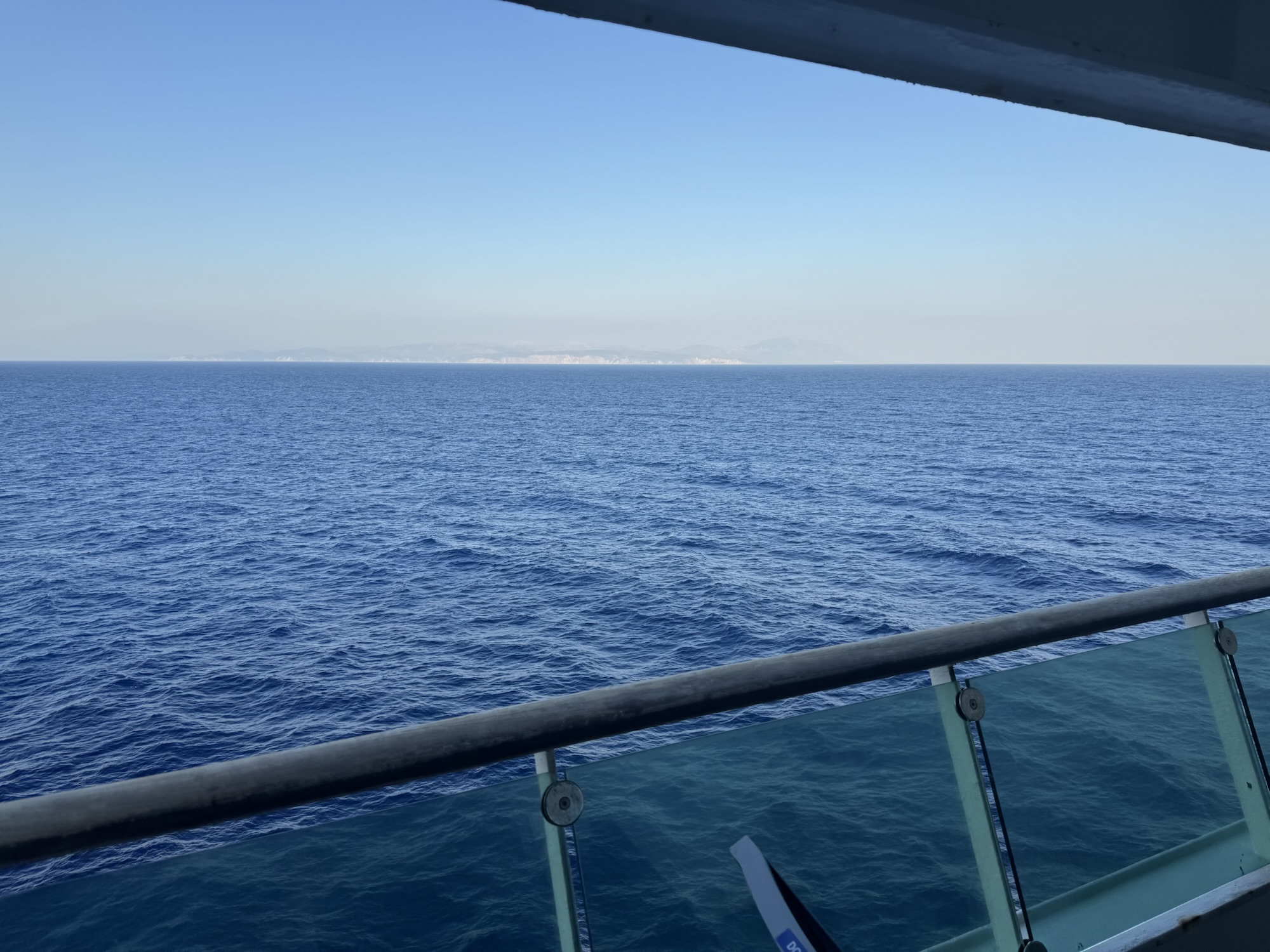Today was Day 4 of our Greek Island Travel Devotional Tour and our “destination” was the Adriatic Sea.
We spent the day traveling the Adriatic Sea from Ravenna. So, it was a day to relax, and think about events that occurred in Adriatic in Christian history to see if there were any lessons we could learn from that history. Sometimes those lessons are lessons about what not to do. That was certainly the case today.
Most embarrassing event in Christian history?
The Adriatic Sea was appropriate for our purposes because it is where the Fourth Crusade started. In 1204, Venetian and Latin (Roman Catholic) Christians set out on a crusade to liberate Jerusalem, but they ended up doing something no crusade had ever done before: they attacked a Christian city. Actually they attacked two Christian cities.
The first was the city of Zara on the Dalmatian Coast on the Adriatic Sea. From there they went to Constantinople, the very heart of Christianity at the time, and attacked and then sacked that city. They never made it Jerusalem. The events of the Fourth Crusade were shocking then, and they are shocking now.
However, if you had talked to the Venetian and Latin Christians on the Fourth Crusade about why they attacked Zara and Constantinople, they would have given you reasons, both political and ethical, that they felt justified what they did. And when you read the history of it, it does all make sense in a twisted sort of way. Although, it is still shocking, and it doesn’t make it right.
Why it happened
Here’s how it came down. After Saladin reclaimed Jerusalem for the Muslims, in 1198 A.D. Pope Innocent preached a crusade to take back Jerusalem. It was decided that rather than traveling over land, as previous crusades had, the crusaders would travel by ships. The crusaders needed enough ships to transport 35,000 crusaders, and the Venetians were best shipbuilders in the world. So, the Latins entered into a deal promising to pay the Venetians for the ships after crusaders showed up in Venice and each was charged a transportation fee.
The problem was that nowhere near 35,000 men showed up, but the Venetians still needed to be paid for having built the ships. So, the Venetians cut a new deal with Latin crusaders that involved them helping the Venetians sack Zara, a Christian city on the Dalmatian Coast. Zara had been rebellious toward Venetian rule and the Venetians thought this a good exchange; what the Latin crusaders thought we don’t know, but they were heavily in debt to the Venetians and didn’t have a lot of options.
While at Zara, the Latin crusaders were approached by exiled Byzantine price, Alexios Angelos, who sought their help in installing him as the Byzantine leader in Constantinople, in exchange for a promise of money and troops for the crusade and a promise that he would reunite the eastern and western churches. Deeply in debt to the Venetians, the Latins agreed
The Latins did what they promised and successfully installed Angelos on the Byzantine throne in Constantinople in 1203, A.D. but Angelos did not keep his part of the bargain. This infuriated the Latins who responded by sacking Constantinople in 1204 A.D.. It was the first and only time in Constantinople’s 1,100 year history that it would be sacked, with the exception of 1453 A.D., when it finally succumbed to Mehmed II. The crusaders never made it to Jerusalem.
While knowing the backstory and motives behind the Fourth Crusade certainly explains why it happened, it doesn’t make it any less wrong. How the Venetians dealt with the aftermath of what they had done is addressed in two of the books on our reading list, Venice, A New History and Sacred Plunder: Venice and the Aftermath of the Fourth Crusade. If one were to draw a parallel to modern events, it might be how Germans had to deal with their collective conscience following the atrocities of World War II.
What we can learn
But the Venetians did what we do today, they judged themselves by their motives, not by their conduct. Jesus said we were to judge ourselves based on both.
In the Sermon on the mount, one of the points Jesus made is that God is not just interested in our conduct, but our motives as well. After the part of the sermon where Jesus discusses murder and anger and lust and adultery, He ends by saying:
Be perfect, as your Father in heaven is perfect.
Matthew 5:48
The word “perfect” is understood to mean “complete” or “mature.” Following on what Jesus had just discussed, Jesus is concluding by saying we should be righteous internally and externally. Good motives do not justify unrighteous conduct, and good conduct is not a cover for unrighteous motives.The goal of our sanctification is not just to have good intentions or good outward conduct but to have both.
Tomorrow we reach our first cruise destination.
See you then. GS


